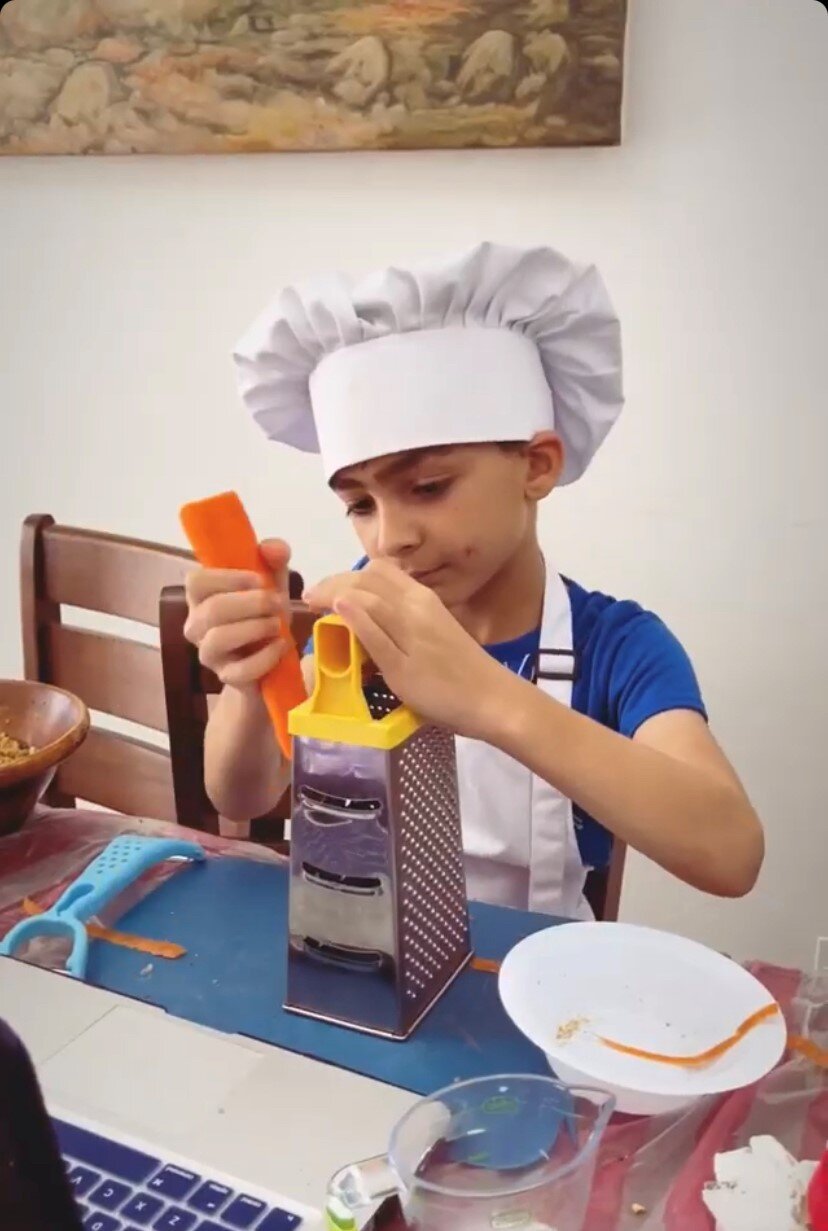Prepare your kids for an exciting new year? Top 5 after-school activities they can try at home (2022)
If your children spend most of their time idly browsing random mindless videos, or if you struggle to replace their passive screen time with something more engaging, it’s time you changed up their after-school routine. Taking part in after-school activities, or extracurricular activities when done right can be a great learning experience that not only give children an enjoyable time but also help them develop essential skills for the future.
What if, you may ask, there are no fun activities around my place? Or you are too tired of the hustle of driving for a good 30 minutes to reach the nearest facilities? Well, we got you covered. Here are the top five after-school activities your kids can try at home:
1. Practice mindful movement:
Two children joining a live, online, interactive mindful dance class with upiopi’s partner IntoSchool
Many kids are often restless because they have so much pent-up energy. For them, practicing mindful movement can help them release their energy in an efficient way and promotes calmness. A very good exercise is mindful breathing, which lets children connect with their body and become more aware of their sense of self.
On the other hand, some children tend to be on the shyer side of the spectrum when expressing themselves via physical movement. In this case, signing up for classes that involve mindful movement such as dancing, stretching or yoga could act as a gentle push and build up their confidence.
Skills children can develop via mindful movement:
Enhance body awareness
Improve coordination and stretching
Sharpen motor skills
Develop spatial awareness
Decrease anxiety and promotes calmness
Build a positive self-image
In case you are looking for a mindful movement class for your children, guided by experienced teachers from Finland, check out our upiopi mindful movement lesson or programs for children from 5 to 10 years old.
2. Learning to code
A child learning computational thinking via an interactive activity by upiopi’s partner HelloRuby. Credit: Tarja
Coding is not only for future computer programmers or students who follow computer science. At its course, coding is about learning the logic that helps us solve a certain problem, not merely the programming language. Since having a logical mind is certainly beneficial in solving problems, coding can benefit all children who pursue various career paths.
To get your child interested in coding, you can start off with showing them what coding can create, such as interesting app, websites, or video games. On a daily basis, you can integrate “mini challenges” such as puzzle or logical questions to boost your child’s logical thinking muscle. Since not every parent is familiar with teaching kids to code, it’s a good idea to find classes with a mentor to guide and timely reply to your child’s questions.
Skills coding helps children develop:
Improve mathematical thinking
Learn to recognize patterns and build simple sequences
Understand how to break a problem into smaller parts
Strengthen creative thinking muscles
Develop problem solving skills
Are you searching for an age-appropriate coding activity with a mentor that can guide your child during the process? Have a look at our Meet Ruby! Patterns and decomposing program or lessons for children 5 to 7 years old.
3. Making art: Putting your imagination into strokes and colors
Two children making art with the guidance from coach. Source: IntoSchool
Children are born artists. They can naturally express themselves on your bedroom wall, or splash paint and colors all over the table. To help the children channel their creative energy into effective outlets, you can guide them on how to use different drawing brushes, crayons, or watercolors. You can also “challenge” them to make art with more out-of-the-box tools such as tree twigs, leaves, pebbles, or eggshells. Art is all around us. And your children can create amazing artworks with a bit of intention.
An important note is not to judge or “mold” your children’s artworks in certain ways. The key to them making art is to express themselves in the way that they feel true. So give yourself a chance to observe and acknowledge their unique creativity.
Skills children can improve while making art:
Enhance creative expression
Develop fine motor skills
Establish and improve concentration
Better hand-eye coordination
Increase individual confidence
If your child wants to join a small group where they can express their creativity with their peers, our upiopi art lessons or programs may be what you need.
4. Doing science experiments
Two children doing exciting science experiments at home. Source: KideScience
Doing science experiments is a great way for children to understand more about the world. Why do our hairs stand up in winter? Why does water “disappear” if we boil them for too long? What creates rain? Exploring the science realm is a foolproof way to answer your children’s curiosity and expand their knowledge.
An important note is to involve your child in all parts of the science projects. From choosing an experiment idea to collecting the right materials and solving problems should any challenge arise during the experiment, ask what your child think and guide them instead of doing it for them. This can boost their confidence in making decisions, a vital skill for future success.
Skills doing science experiments can strengthen in your children:
Develop measuring and predicting skills
Practice observing and communicating observations
Learn to give arguments to support interpretation
Build up creativity and handcrafts
Experience joy in doing research
If you don’t know which science experiments your children can start with, check out our latest series of fun, engaging, practical upiopi science lessons or science programs for 2022!
5. Cooking
A kid learning to grate carrots with a live, online, interactive cooking lesson from upiopi
“Cooking is like painting or writing a song. Just as there are only so many notes or colors, there are only so many flavors—it’s how you combine them that sets you apart.” Cooking is surely a form of art that is both beautiful and delicious! Letting your children recreate a simple smoothie recipe or wrap rolls can make an enjoyable time (and food!) for the whole family.
Cooking with siblings can also boost your children’s communication and collaboration capabilities. The process allows them to listen to their “teammate” and express their ideas in a respectful manner. They can truly understand the power of teamwork, which will empower them in many aspects of their lives.
Skills they can practice while cooking:
Boost mathematical skills via counting, weighing, and measuring
Learn to follow directions
Increase creative expression
Strengthen hand-eye coordination and fine motor skills
Develop their taste palette
Wondering how to teach kids to cook if you do not have time? Our upiopi cooking lessons are built to unlock your children’s chef-ness and creativity!
We hope this list gives you an idea to create an enjoyable, engaging time for your kids with fun, practical at home activities they can do after school. Take time to do them and see how your children’s skills have developed!
Have a blast 2022!






